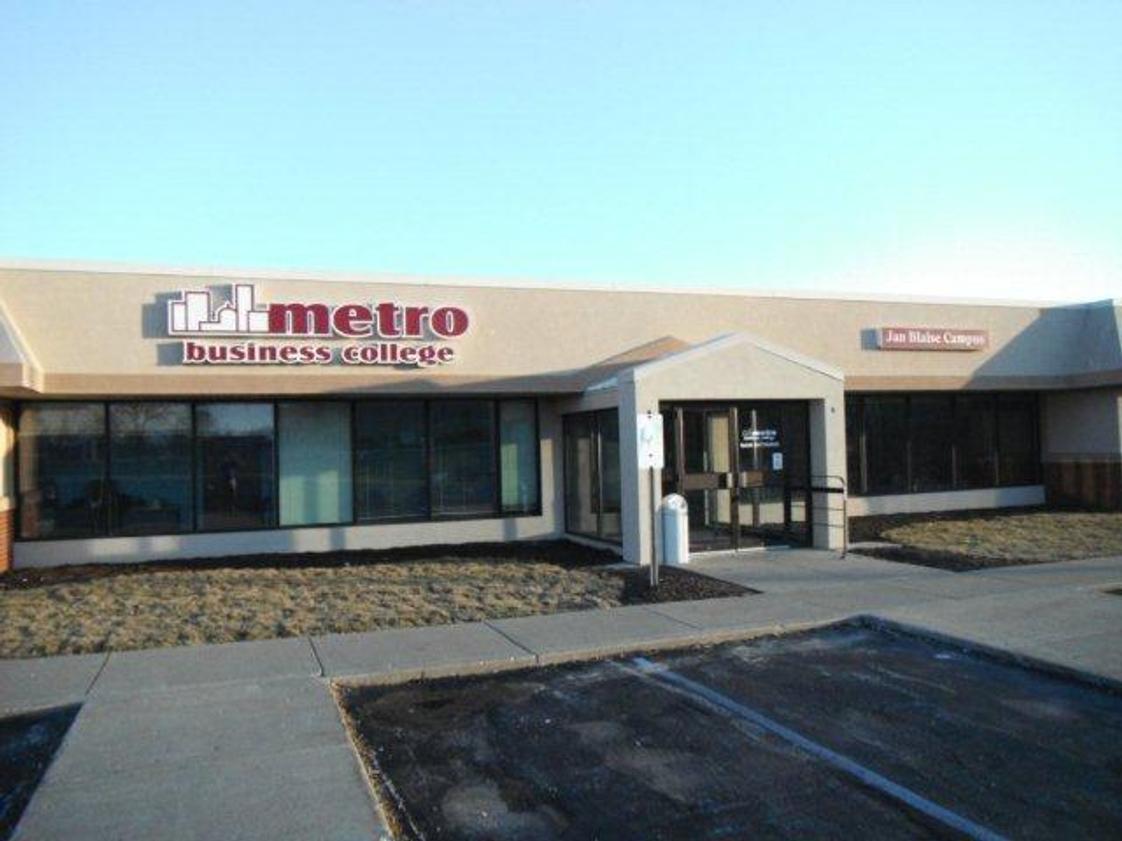School Highlights
Metro Business College-Jefferson City served 48 students (83% of students were full-time).
The college's student-teacher ratio of 5:1 was lower than the state community college average of 16:1.
Minority enrollment was 36% of the student body (majority Black), which was less than the state average of 41%.
School Overview
Metro Business College-Jefferson City
(MO) Community College Avg.
Carnegie Classification
Special Focus Two-Year: Health Professions
Baccalaureate Colleges: Diverse Fields
Institution Level
Less than 2 yrs
At least 2 but less than 4 years
Institution Control
Public
Public
Total Faculty
10 staff
139 staff
Student Body
Total Enrollment
48 students
2,125 students
Student-Teacher Ratio
5:1
16:1
# Full-Time Students
40 students
718 students
# Part-Time Students
8 students
1,407 students
# Enrollment Undergraduate
177 students
246 students
# Full-Time Undergraduate Students
40 students
834 students
# Full-Time Graduate Students
n/a
11 students
# Part-Time Undergraduate Students
n/a
684 students
# Part-Time Graduate Students
n/a
9 students
Total Dormitory Capacity
n/a
200 students
% Asian
2%
2%
% Hispanic
2%
6%
% Black
30%
10%
% White
64%
59%
% Hawaiian
n/a
1%
% Two or more races
1%
4%
% Non Resident races
1%
1%
% Unknown races
n/a
17%
Diversity Score
0.50
0.61
College Completion Rate (Students who graduate in less than 4 years)
67%
30.86%
College Completion Rate (Students who graduate in 4 years or more than 4 years)
n/a
62%
Average Graduate Earnings (10 Years)
$20,500
$30,900
Tuition and Acceptance Rate
In-State Tuition Fees
$10,325
$4,393
Out-State Tuition Fees
$10,325
$6,050
Tuition Notes
Includes books
% Students Receiving Some Financial Aid
100%
91%
Median Debt for Graduates
$10,427
$10,938
Median Debt for Dropouts
$6,333
$5,500
Acceptance Rate
76%
66%
Source: 2020 (or latest year available) Integrated Postsecondary Education Data System (IPEDS) , School Administrators
School Notes
- Metro Business College awards Associate of Applied Science Degrees in Business & Computer Specialist, Medical Specialist, Medical Billing and Coding Specialist and Accounting Paraprofessional. The College awards diplomas in Business and Computer Assistant, Accounting Assistant and Medical Office Assistant. The College awards certificates in Administrative Assistant, Massage Therapy and Medical Assistant. All four campuses are nationally accredited by the Accrediting Council for Independent Colleges and Schools. In fact, MBC has achieved Honor Roll School status with ACICS. For information regarding graduation adn placement rates, program costs and other information, please go to: www.metrobusinesscollege.edu/disclosure.html
Frequently Asked Questions
How much does Metro Business College-Jefferson City cost?
Metro Business College-Jefferson City's tuition is approximately $10,325 for In-State students and $10,325 for Out-State students.
What is the acceptance rate of Metro Business College-Jefferson City?
The acceptance rate of Metro Business College-Jefferson City is 76%, which is higher than the state average of 66%.
Recent Articles

5 Key Community College Trends Parents Should Know in 2026
Explore major 2026 community college trends including enrollment changes, costs, career programs, and affordability for parents planning college decisions.

Average Community College Tuition Cost 2026 Update
Explore updated 2026 community college tuition averages, cost trends, planning tips, admissions timing advice, and financial strategies for families and students.

Preparing for Placement Tests in 2026: Student Guide
Preparing for Placement Tests in 2026, what students, parents, and educators need to know about formats, prep strategies, and placement changes.







